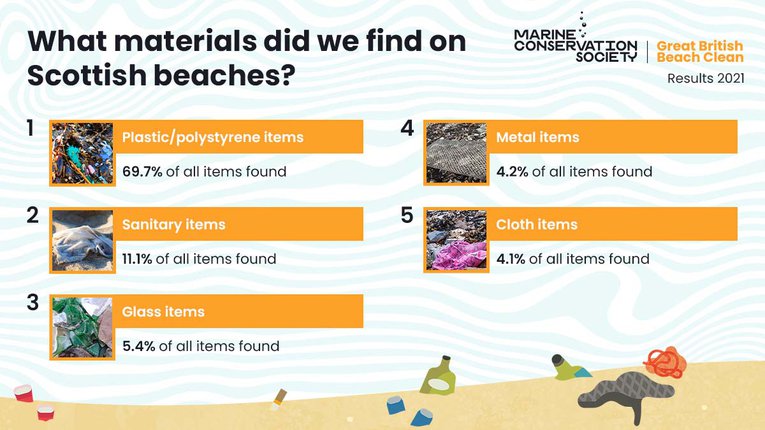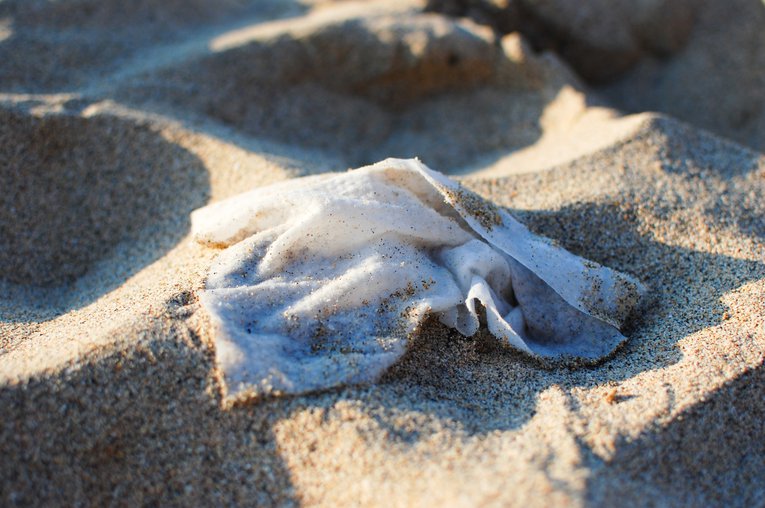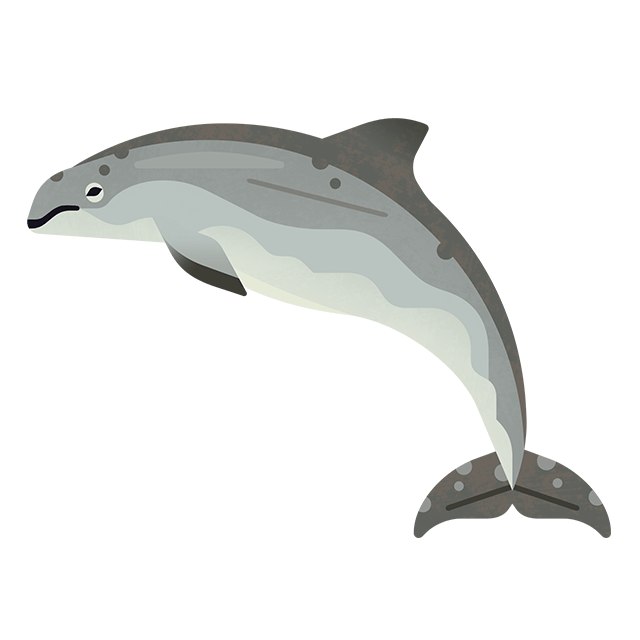
Great British Beach Clean 2021: Scotland
Data collected from our Great British Beach Clean in September 2021 shows that beach litter is dropping across the UK but wet wipes and plastic are still polluting Scottish shores.

Credit: Lee Live
What did the Scottish results show?
A dedicated team of 1,531 volunteers cleared and surveyed a total of 15,575 metres of Scottish beach during this year's Great British Beach Clean. Throughout the week, they filled 592 bags with litter, weighing 2,002kg.
Here's what they found:
- 346 items were found on average per 100 metres; with the average dropping over the last five years.
- An average of 10 plastic cotton bud sticks were recorded, dropping 50% from last year.
- An average of three single-use plastic shopping bags were recorded for every 100 metres of beach, dropping from an all-time high of 17 recorded on Scotland’s coast in 2013.
- 70% of Scottish beach litter collected made of plastic or polystyrene. An average of 101 plastic or polystyrene pieces were found for every 100 metres of Scottish beach surveyed.


Our data is making a difference
The drop in litter levels can at least in part be attributed to single-use plastics bans and charges put in place across the UK. Marine Conservation Society data supported Scotland’s banning of the manufacture and sale of plastic cotton bud sticks in October 2019.
The carrier bag charge, which was increased to 10p in April 2021 in Scotland, is another policy which has likely had a positive impact on Scottish beach litter levels.

We must take action on wet wipes
The second most common litter item polluting Scottish beaches is wet wipes, many of which contain plastic.
Wet wipes have consistently featured in the top 10 most common litter items on Scottish beaches surveyed over the last five years. This form of litter, including other sewage-related items (like sanitary towels and nappies) isn’t a pandemic-related problem, but a chronic, long-term issue that needs to be tackled now.
Wet wipes often make their way to the coast through the sewer system. When they are wrongly flushed and sewers subsequently overflow or are misconnected, these items containing plastic end up on Scottish shores.

Credit: Natasha Ewins
What needs to be done
With so much beach litter being made from plastic, we are campaigning for a Circular Economy Bill in Scotland which would phase out the manufacture and sale of plastic products across the board and move Scotland to society of reuse, repair and refill.
How you can help
You don't have to wait until the Great British Beach Clean to help keep our beaches beautiful and our oceans safe for wildlife.
Beachwatch volunteers can take part in beach cleans throughout the year – either by signing up to an organised event or by organising your own event.
And if you don't live near the sea, no problem! That's where our Source to Sea: Litter Quest comes in. Most litter that ends up on our beaches or in the sea starts its journey in villages, towns and cities miles from the coast.
All of the data you collect on the beach, on your street or in a local park helps us campaign for change, which means that your school can help turn the tide on ocean pollution.



